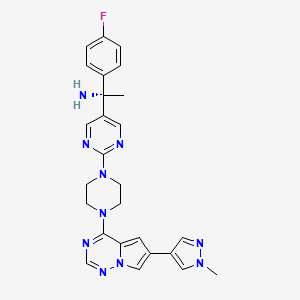
In continuation of my update on Regorafenib
Oral multikinase inhibitor regorafenib achieves significantly improved survival rates compared to placebo in patients with hepatocellular carcinoma, according to data from the phase III RESORCE trial, presented at the ESMO 18th World Congress of Gastrointestinal Cancer in Barcelona, Spain.
"Systemic treatment for hepatocellular carcinoma has long consisted of just one agent - sorafenib -which was shown to provide a significant improvement in life expectancy almost 10 years ago, but no other agent has surpassed its benefits," said the study's principal investigator Dr Jordi Bruix, Head of the BCLC group at the Hospital Clínic and Scientific Director of the Network for Biomedical Research for Hepatic and Digestive Diseases (CIBEREHD).
While the last decade has seen many potential new agents for hepatocellular carcinoma fail in clinical trials, phase I and II data from early regorafenib trials were promising, and led to the initiation of this international, multi-center phase III trial.
Researchers enrolled 573 patients with intermediate or advanced stage hepatocellular carcinoma, who had all been previously treated with sorafenib, and randomized them 2:1 to 160mg oral regorafenib or placebo once daily for 1-3 of each four week cycle, in addition to best supportive care.
After a median of 3.6 months of treatment, patients on regorafenib showed a 38% reduction in the risk of death and a 54% reduction in the risk of progression or death compared to placebo.
Mean progression-free survival was 3.1 months with regorafenib and 1.5 months with placebo, while median overall survival was 10.6 months for regorafenib and 7.8 months with placebo.
Overall, 65.2% of patients on regorafenib showed complete or partial response or stable disease, compared to 36.1% of the placebo group.
Regorafenib had a similar safety and side effect profile to sorafenib, with hypertension, hand-foot skin reaction, fatigue and diarrhea all being significantly more common in patients taking the drug.
Dr Bruix said that the benefits of the drug were evident regardless of the cause or stage of the tumor, but analysis of biomarkers would reveal whether there might be certain sub-groups of patients likely to derive even greater benefit from this treatment.
"This is a very difficult to treat cancer but now we have an effective second-line agent, which is good news for the patients and also for the field as interest in further developments will be stimulated," Dr Bruix said.
Ref : http://www.esmo.org/Press-Office/Press-Releases/Regorafenib-Shows-Significant-Survival-Gains-in-Refractory-Liver-Cancer





